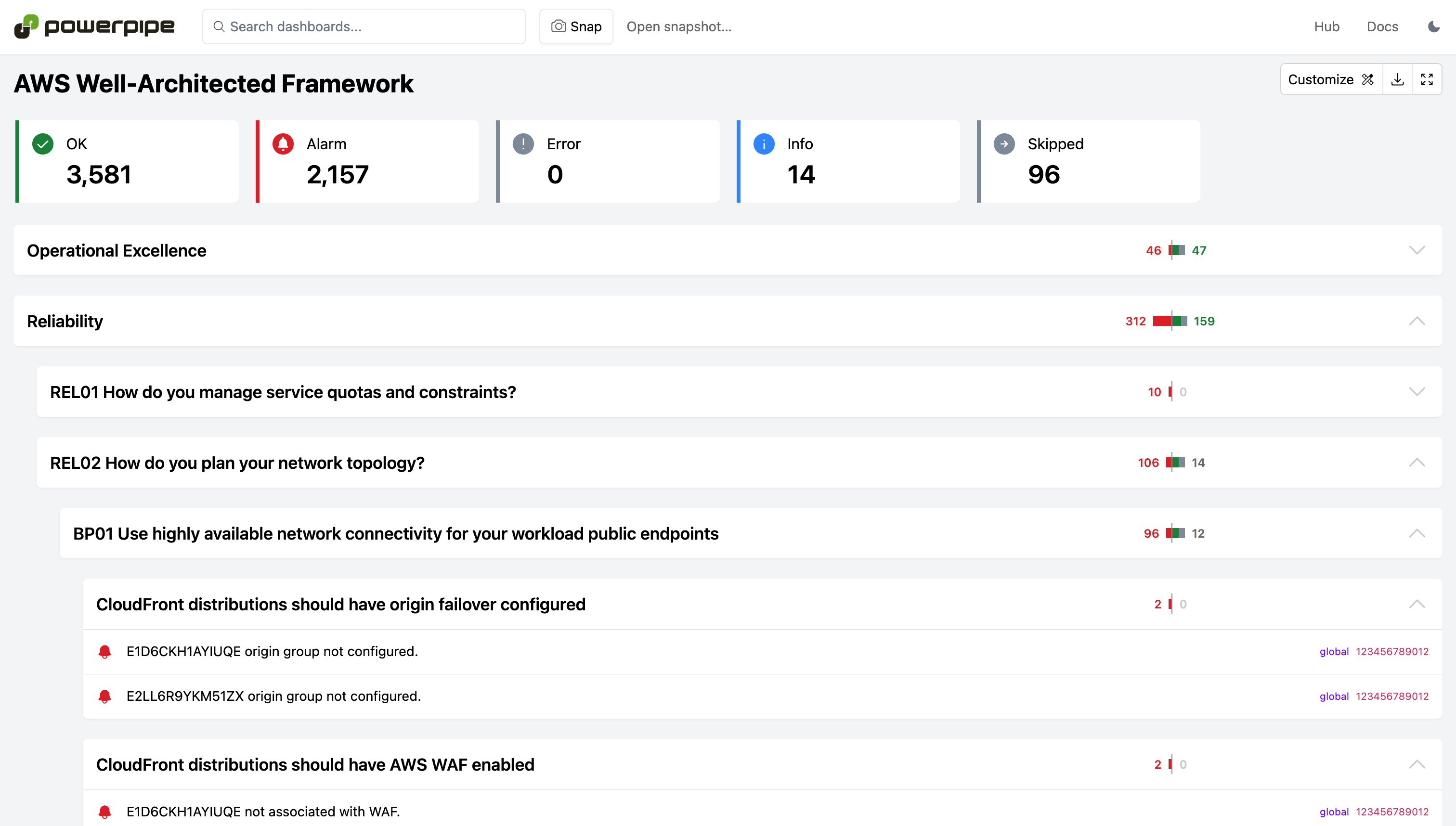200+ checks covering AWS Well-Architected Framework defined best practices across all AWS regions.
Install Powerpipe (https://powerpipe.io/downloads), or use Brew:
brew install turbot/tap/powerpipeThis mod also requires Steampipe with the AWS plugin as the data source. Install Steampipe (https://steampipe.io/downloads), or use Brew:
brew install turbot/tap/steampipe
steampipe plugin install awsSteampipe will automatically use your default AWS credentials. Optionally, you can setup multiple accounts or customize AWS credentials.
Finally, install the mod:
mkdir dashboards
cd dashboards
powerpipe mod init
powerpipe mod install github.com/turbot/steampipe-mod-aws-well-architectedStart Steampipe as the data source:
steampipe service startStart the dashboard server:
powerpipe serverBrowse and view your dashboards at http://localhost:9033.
Instead of running benchmarks in a dashboard, you can also run them within your
terminal with the powerpipe benchmark command:
List available benchmarks:
powerpipe benchmark listRun a benchmark:
powerpipe benchmark run well_architected_frameworkRun a benchmark for a specific pillar:
powerpipe benchmark run well_architected_framework_securityRun a benchmark for a specific question:
powerpipe benchmark run well_architected_framework_sec01Run a benchmark for a specific best practice:
powerpipe benchmark run well_architected_framework_sec01_bp01Different output formats are also available, for more information please see Output Formats.
The benchmark queries use common properties (like account_id, connection_name and region) and tags that are defined in the dependent AWS Compliance mod These properties can be executed in the following ways:
It's easiest to setup your vars file, starting with the sample:
cp powerpipe.ppvars.example powerpipe.ppvars
vi powerpipe.ppvarsAlternatively you can pass variables on the command line:
powerpipe benchmark run well_architected_framework_security --var 'common_dimensions=["account_id", "connection_name", "region"]'Or through environment variables:
export PP_VAR_common_dimensions='["account_id", "connection_name", "region"]'
export PP_VAR_tag_dimensions='["Environment", "Owner"]'
powerpipe benchmark run well_architected_framework_securityThis repository is published under the Apache 2.0 license. Please see our code of conduct. We look forward to collaborating with you!
Steampipe and Powerpipe are products produced from this open source software, exclusively by Turbot HQ, Inc. They are distributed under our commercial terms. Others are allowed to make their own distribution of the software, but cannot use any of the Turbot trademarks, cloud services, etc. You can learn more in our Open Source FAQ.
Want to help but don't know where to start? Pick up one of the help wanted issues:
- Thanks to @JPPienaar and @nathanwebsterdotme from Daemon for developing some of the control mappings used in the Well-Architected Framework benchmarks.

